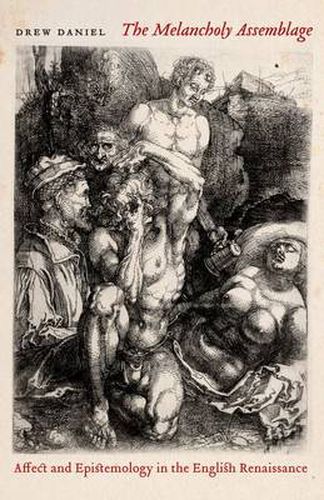Readings Newsletter
Become a Readings Member to make your shopping experience even easier.
Sign in or sign up for free!
You’re not far away from qualifying for FREE standard shipping within Australia
You’ve qualified for FREE standard shipping within Australia
The cart is loading…






This book considers melancholy as an assemblage, as a network of dynamic, interpretive relationships between persons, bodies, texts, spaces, structures, and things. In doing so, it parts ways with past interpretations of melancholy. Tilting the English Renaissance against the present moment, Daniel argues that the basic disciplinary tension between medicine and philosophy persists within contemporary debates about emotional embodiment.
To make this case, the book binds together the paintings of Nicholas Hilliard and Isaac Oliver, the drama of Shakespeare, the prose of Burton, and the poetry of Milton. Crossing borders and periods, Daniel combines recent theories that have-until now-been regarded as incongruous by their respective advocates. Asking fundamental questions about how the experience of emotion produces community, the book will be of interest to scholars of early modern literature, psychoanalysis, the affective turn, and continental philosophy.
$9.00 standard shipping within Australia
FREE standard shipping within Australia for orders over $100.00
Express & International shipping calculated at checkout
This book considers melancholy as an assemblage, as a network of dynamic, interpretive relationships between persons, bodies, texts, spaces, structures, and things. In doing so, it parts ways with past interpretations of melancholy. Tilting the English Renaissance against the present moment, Daniel argues that the basic disciplinary tension between medicine and philosophy persists within contemporary debates about emotional embodiment.
To make this case, the book binds together the paintings of Nicholas Hilliard and Isaac Oliver, the drama of Shakespeare, the prose of Burton, and the poetry of Milton. Crossing borders and periods, Daniel combines recent theories that have-until now-been regarded as incongruous by their respective advocates. Asking fundamental questions about how the experience of emotion produces community, the book will be of interest to scholars of early modern literature, psychoanalysis, the affective turn, and continental philosophy.